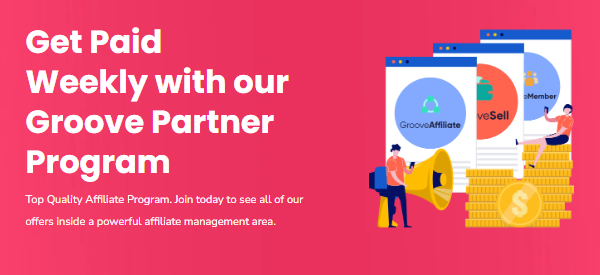Can you learn Search Engine Optimization (SEO) yourself?
Before we begin, I’d like you to tell me a bit about yourself. In 2015, I obtained my degree in Human Resources from a well-regarded university located in a picturesque city of Denmark. (Un)fortunately, I struggled finding a relevant job within HR. So what to do with your free time?
I realized one day that there are a great number of graduates who possess the same capabilities as I do. So I was wondering how I could shine out. I desired something that I could not learn at college. I had nothing of any worth concerning Search Engine Optimization and was completely uneducated on the subject. I started to teach it myself anyways.
Understand the Concept
The typical approach for starting a small to medium-sized e-commerce venture is the following: Acquire an initial domain name, opt for the most affordable Content Management System, set up the website’s architecture as primary, and submit hastily written material.
In the majority of situations, an Online Marketing strategy is neglected.
Eventually, the creators of the website understand that their online store or web service is not meeting expectations and that their Google rankings are not improving significantly.
Right now, business owners are looking for assistance with SEO because of two factors. They are unable or unwilling to handle the task on their own.
I remain calm and collective when I’m working on website optimization for a client.
I find myself perplexed most of the time regarding what it is that they really offer or have for sale. You wouldn´t believe how many niché products there are. I continuously ponder, ‘How can I ever identify keywords pertinent to “pneumatically controlled coupling” products?!’ Don’t stress — remain focused 😉
What keywords should I use when searching for “pneumatically controlled coupling” products?
I take a break and do some introspection prior to going into the technical side of SEO. I refer to this as “gaining comprehension”. What I do is basically answering 3 relatively simple questions:
1) What is the website structure?
To begin, I am exploring the structure of the website. I perused the landing page, examined the category pages, and gained a general understanding of the merchandise they offer. Becoming familiar with the configuration and ideas of the various topics allows me to easily construct the website’s layout.
At Step 2, you will ascertain the importance of performing keyword research for a fruitful SEO strategy.
2) What is the clients language/value system/idea of business?
Next, I want to understand the business strategy of my client. Let´s take a look at my Flower Start-Up:
An illustration is visible on the left side, featuring an item with a Latin name that is difficult to recall. It is evident that the images all come from a professional photographer and have a uniform design across the portfolio.
You won’t be able to observe a nice, distinct explanation on the webpage that gives additional information about the size, hues, or features of this plant. You will have to spend somewhere between seventy and one hundred US Dollars to acquire this attractive plant.
The evidence I have gathered indicates that this is not a typical e-commerce website. This company provides top-notch plants and is run by two women who create distinct and highly crafted writing. In subsequent actions, I will abstain from using platitudes like “purchase now” or “inexpensive plants for sale” and adjust my language properly. My SEO will be based on terms that emphasize attractiveness, layout, and excellence.
3) What is the target group?
The target group is closely associated with the language or concept of the business. Using data from Google Analytics and speaking with my client, I concluded that the majority of their customers are upper class individuals from Denmark between the ages of 25 and 45. Interestingly, 4 out of 5 buyers are female. The data collected here can be a great asset when making content and selecting audience to direct it towards.
Keyword Research
Once I have a comprehensive understanding of my customer and their web platform, I get straight to the essence of the matter. The topic of Keyword Research is one of the most talked-about aspects of SEO and there is an abundance of information available in the form of articles, videos, and books. It is certainly worthwhile to compose an individual blog article concerning this subject. Therefore, I am not going to give a lot of explanation.
It is essential to make sure a comprehensive keyword analysis is done before devising a successful SEO tactic.
I taught myself Search Engine Optimization, so I took some time to watch a few videos and a helpful web tutorial from the “Learning Club” which really enabled me to understand the process of discovering keywords. If you’re a novice when it comes to SEO, I suggest that you take a peek.
Consequently, it is evident that comprehending the ideas of your customer is essential. For the different webpages of the website, you should carry out some research to determine appropriate keywords. In other words, let the fun begin!
This is how I go about tackling this matter. MOZ have given those interested in SEO an excellent resource called the Keyword map. This blog post is certainly commendable. Its main purpose is to arrange URLs and related keywords in a structured way. You can envision the potential of places that already exist by utilizing it. Let me give you an example:
Keyword Competition Analyses
At the present time, you should have a better grasp on the business sector in which your customer works. You are likely quite familiar with the website and have a number of potential keywords in mind that you could use, ranging from 5 to 50 per page. The following phase of the process involves deciding on the words and phrases you would like to be ranked highly for in natural web search. For that, you need to do some analysis.
You may consider setting up a portion of your online store dedicated to football shoes. The Keyword Planner reveals approximately 8,000 inquiries per month concerning the keyword, so you’re interested in looking into it. In order to analyse the competition for this keyword, I am usually looking at 3 criteria:
1) Backlinks and Page Authority (PA) on page 1
Generally, the higher the number of backlinks to a website, the higher it will rank. Illustrating this point is the example given. Not every situation follows this pattern, however. Links pointing to a website demonstrate its acceptance or significance. If lots of websites link to your page, Google will take this as a sign of its importance concerning the topic.
Furthermore, MOZ has come up with Page Authority and Domain Authority scores to keep pace with other metrics.
2) Relevancy of the keyword in title and content
Once I have identified a keyword that has a good amount of searches but isn’t overly competitive, I will take a look at the title tags of the first page results that come up in a Google search using that keyword. It is recommended that you examine if the first results of your search feature the primary keyword in their headline, or if they make use of related words. When searching Google, if related words or phrases are appearing in the results, it could mean that there are not enough specific outcomes associated with the particular search term. This could be a specialty area in which you want to get involved. Let´s have a look here:
I will investigate to see if the phrase “indoor plants” is applicable. The picture illustrates that the first two pages display “the term” in the page heading and web address. So they are hitting it. The third outcome involves substituting the word “houseplants” in place of a synonym. This website is a viable launching point, as your webpage may be more significant to the inquiry if you modify it with the key phrase “indoor plants”. If you come across a situation similar to this, it is advisable to take it an additional step.
3) Quality of Content
If you identify a keyword with low competition in terms of backlinks, Page Authority and the content’s correlation to the title, review the quality and authority of the content on the first page’s results. Do you want to discover if you can create content that is better and more relevant than what other people provide?
Audit
The Process
We kick off by conducting a technical and/or content assessment.
Technical Audit
An evaluation of all facets of a website that are capable of influencing its search engine optimization results is known as a technical audit.
Rapidity is one of the cardinal factors.
I’ve observed lots of websites planting a huge video introductory section on the frontpage that takes an excessive amount of time to download.
The result?
Your bounce rate is quite high, thus a prospective customer or client was not acquired.
It would drastically improve performance and lead to more conversions if they either shortened the video or positioned more pertinent information higher up on the page.
An intensive examination should be undertaken over a period of time ranging from several days to weeks, depending on the issues and deficiencies of the webpage.
Content Audit
Conducting an audit of the content on a big website with thousands of pages is highly beneficial.
A content audit will enable you to determine which pages are doing great and which ones are lacking.
Afterwards, you can determine which material you want to preserve, revise or modify, or do away with entirely from your site.
When you delete material from your website, it is likely to result in a decrease in visitors – yet this is what one is expecting. You want to deter non-relevant traffic.
Technical SEO
The Process
When it comes to technical SEO, there’s a lot to think about, including:
- Index status.
- Crawl budget.
- Crawl errors.
- Internal links.
- Sitemaps.
- Site/page speed.
- Redirects.
- Broken links.
- HTTPS.
- AMP.
One needs to take a comprehensive view to enhance technical SEO; just focusing on a single item on this list won’t achieve much. It’s essential to take everything into account for your website to be successful.
Location Demographics
The Process
When it comes to SEO for a small business or one that serves a certain geographic region, you are well aware of the importance of having the proper location.
It’s essential to comprehend how people look for regional businesses and service providers, as well as who they are, just as you would need to be familiar with buyer personas.
Ensure that your name, address and phone number details are all accurate and update your content with reference to your service locality, may it be a state, city or neighbourhood.
Content Strategy
The Process
You need a content strategy. Here’s a proven strategy.
Foundational Content
This is your central material that focuses on your primary keywords and topics. Generate content related to your offerings and the most essential words or phrases customers associate with it (“keywords” associated with generating business).
You can broaden the scope of this content by discussing other products and services you supply and any related specific phrases.
FAQ Content
Generate pages that respond to queries your target audience is probably typing into Google search.
Ensure that you have an optimised URL for search engine visibility, include breadcrumbs on your webpage, and create content that is more comprehensive than that of other webpages on the same topic. Bear in mind to double-check the leading 10 positions for comparison.
Authoritative Content
Allow your customers to produce content showcasing their knowledge and genuineness.
User Experience
Consider different strategies to strengthen your material (for instance, adding illustrations), streamline the navigation on your website (connecting to other connected webpages on your site), and encourage users to take action (like offering a no-cost consultation, scheduling a meeting, or downloading content).
Content Writing & Editing
The Process
Your client could decide to create their own content, or opt for you to compose it.
Either way, the content needs to be optimized.
Prioritize your audience or personas firstly, while simultaneously upholding SEO protocol.
You want to compose content that people will interact with and pass on (and that Google will register and be compensated with extraordinary rankings).
Ultimately, it’s about moving people toward a conversion.
Ranking
The Process
You cannot influence the rankings of Google or any other search engine.
You can certainly comprehend the functioning of search algorithms, which is beneficial. But there are never guarantees.
That said, there is one process that can work.
If you do well in all areas we have outlined, you will likely experience success with SEO.
- Know your audience.
- Create great content for your audience.
- Provide a great website experience for your audience.
Conclusion
“Success is a journey, not a destination.”
The same idea applies to search engine optimization just as it does for life in general.
If you concentrate solely on the conclusion, you’ll miss out on the fun, knowledge acquired and overall journey.
Every successful SEO strategy starts with a plan. It is necessary to be committed for an extended period of time, devoting effort to the goal.
SEO is a marathon, not a sprint.






